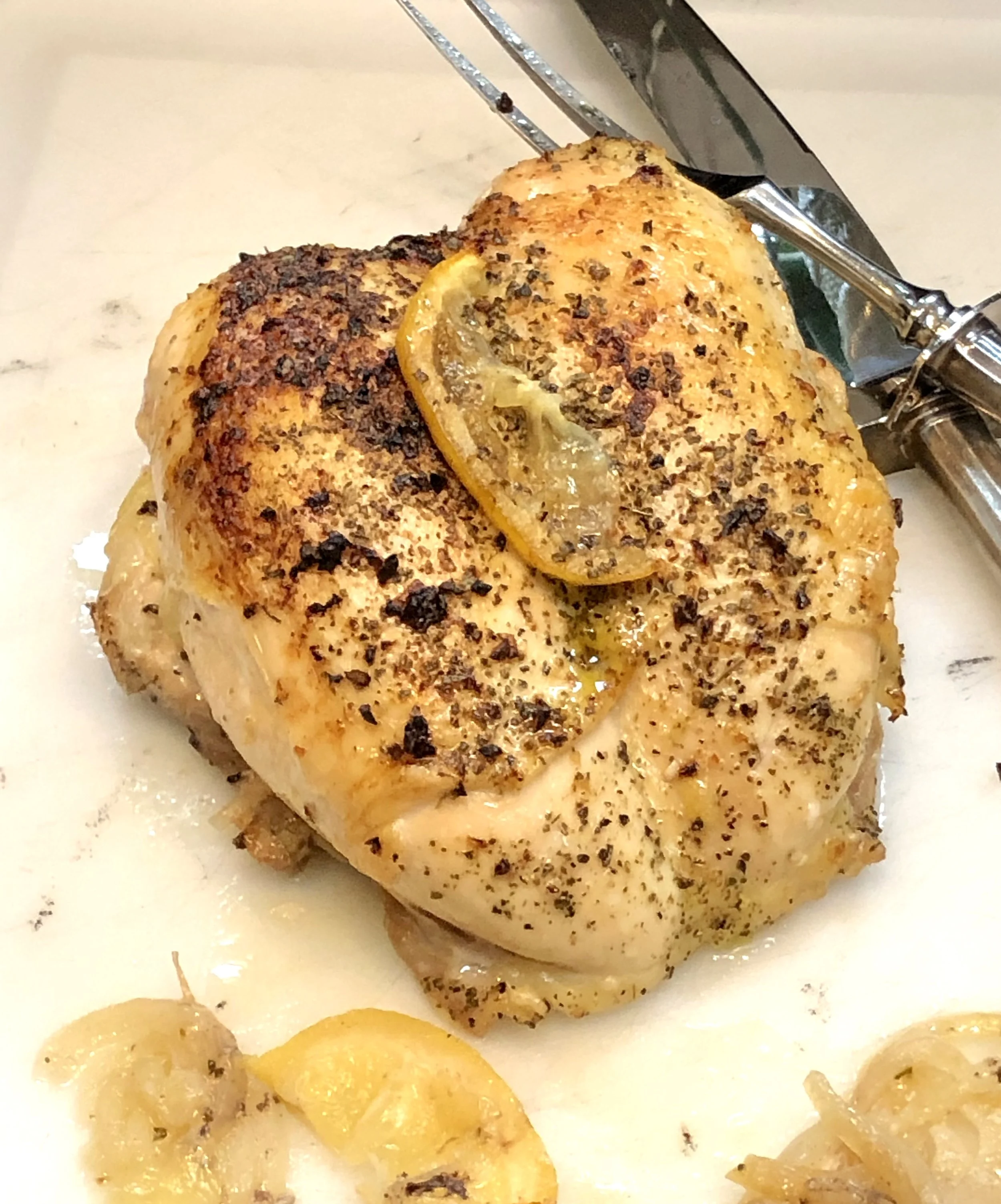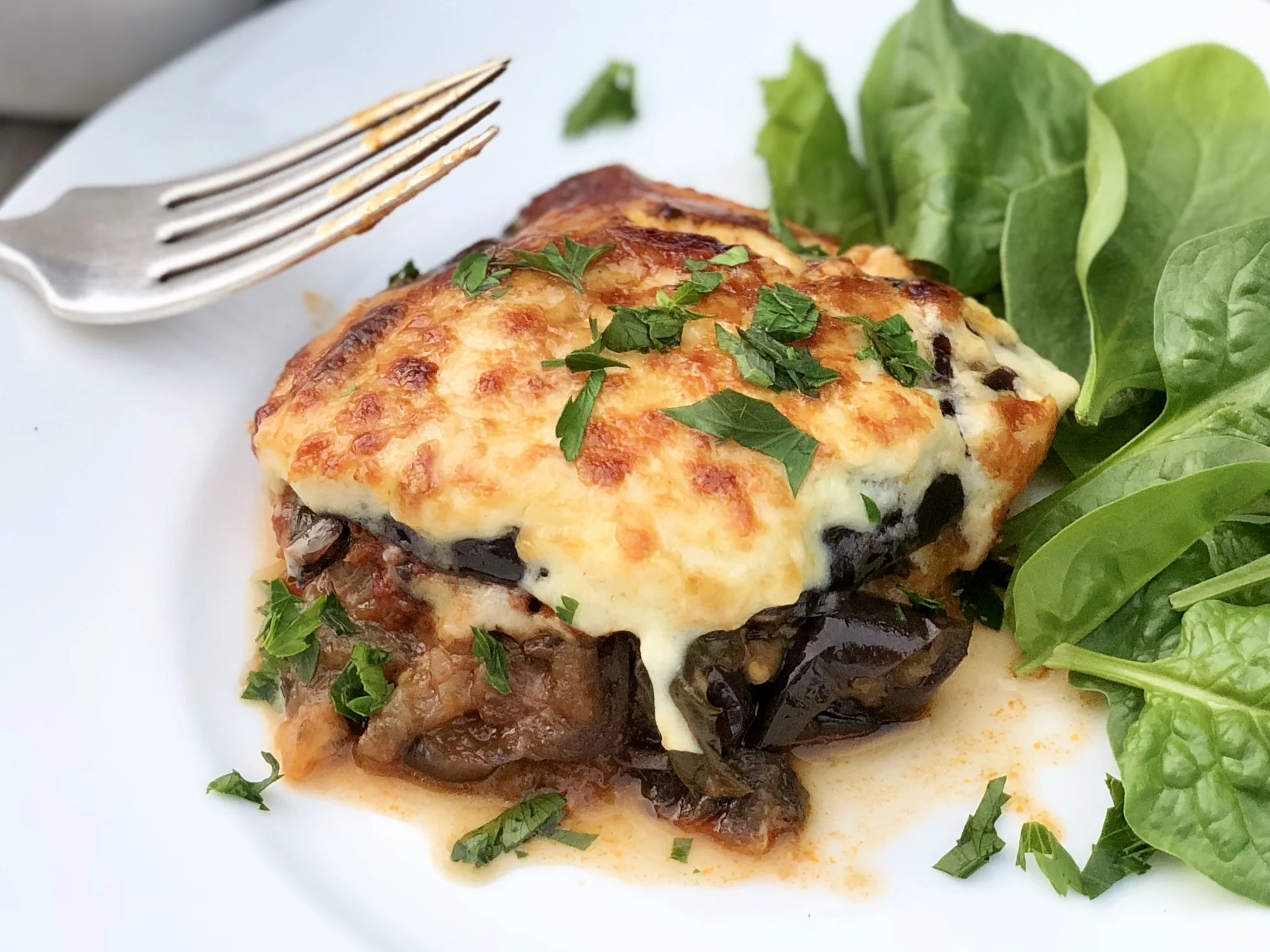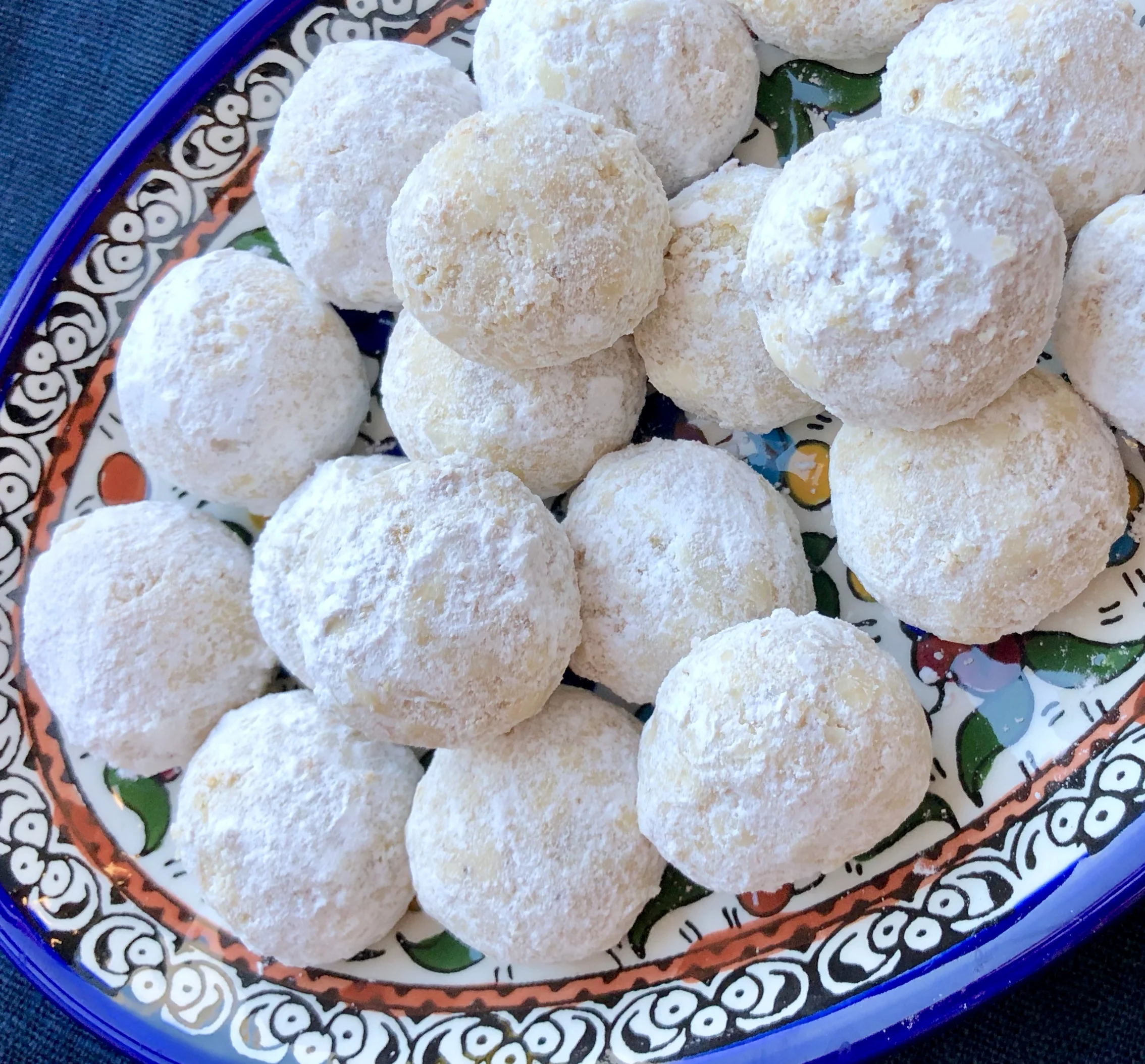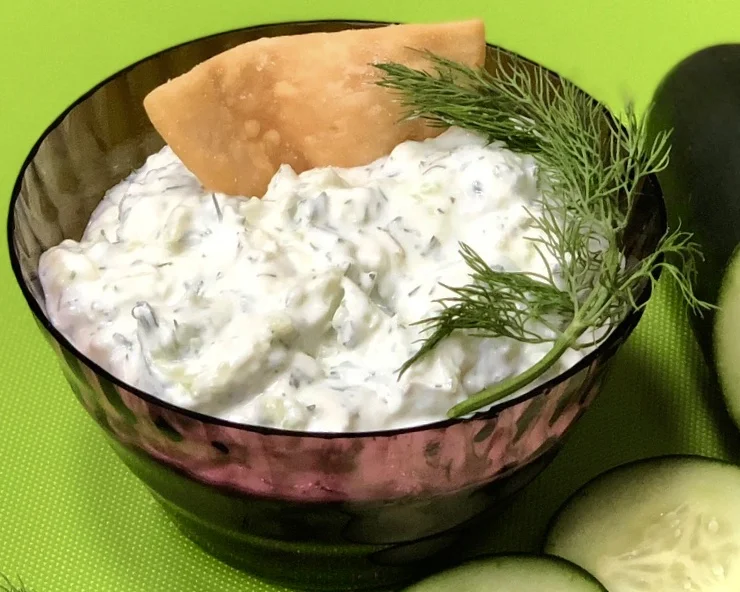Way back in 2009 I wrote an article about wedding feasts for Connecticut Bride Magazine, interviewed several caterers, and was astonished that among the menus they showed me there were so many choices for vegetarians and vegans. I read about creative, gorgeous hors d’oeuvres. Substantial, festive main courses. Glamorous desserts.
I’m not a vegetarian but that assignment was a sort of turnaround for me. I realized that there were lots of delicious foods I hadn’t tried and, that even if I had no intention of becoming a vegetarian or vegan, and even if I wasn’t particularly trying to cut down on meat protein, I was missing some really good food!
I don’t like to miss good food!
So, over the years I have prepared many vegetarian hors d’oeuvre and entrees, many of them spectacular.
This Vegetarian Moussaka is one of them. Portobello mushrooms take the place of meat in this creamy, tangy, comforting dinner dish. A hearty, filling meal, perfect for meatless Monday or any other day. Celebratory enough for a special occasion, wedding or otherwise.
Vegetarian Moussaka
2 medium eggplants, sliced into 1/2-inch thick rounds
salt
2/3 cup olive oil, approximately
1 large onion, chopped
2 medium chopped carrots
3 cloves garlic, finely chopped
3 Portobello mushrooms, chopped
1 bunch fresh spinach (or 2 packed cups baby spinach leaves)
1 28-ounce can plum tomatoes, undrained
3 tablespoons chopped fresh parsley
1 teaspoon dried oregano
1/2 teaspoon ground cumin
1/4 teaspoon ground cinnamon
freshly ground black pepper to taste
3 medium Yukon Gold potatoes, peeled
6 tablespoons butter
6 tablespoons all-purpose flour
2-1/2 cups milk
2 large egg yolks
1 cup grated Parmesan or Romano cheese
Preheat the oven to 400 degrees. Place the eggplant slices on a surface and salt them lightly. Let sit for about 15 minutes, then wipe the surface dry with paper towels. Brush the slices with about 4-5 tablespoons of the olive oil and place them in a single layer on a baking sheet. Bake for 15 minutes, turn the slices and bake for another 12-15 minutes, or until the slices are tender. Let the slices cool. Reduce the oven heat to 350 degrees.
Heat 6 tablespoons olive oil in a sauté pan over medium heat. Add the onion and carrots and cook, stirring occasionally, for 4-5 minutes or until the onions have softened. Add the garlic and mushrooms and continue to cook for another 3-4 minutes. Add the spinach and cook for 1-2 minutes. Add the tomatoes, parsley, oregano, cumin and cinnamon. Season to taste with salt and pepper. Cook for about 15 minutes or until the sauce is very thick.
Cook the potatoes in a large pot of lightly salted water for about 15 minutes, or until tender. Let the potatoes cool, then peel and slice them into 1/4-inch rounds and set aside.
Make a béchamel white sauce: heat the butter in a saucepan over medium heat. When the butter has melted and looks foamy, lower the heat, add the flour and whisk the ingredients for 2-3 minutes. Gradually add the milk and whisk the ingredients for 2-3 minutes or until a thick sauce has formed. Stir about a half cup of the hot sauce into the egg yolks, stir to blend the ingredients and add the mixture back into the saucepan. Stir in 3/4 cup of the cheese, whisk the ingredients until smooth and set aside.
Lightly grease a 9”x13” ovenproof casserole. Layer: half the eggplant on the bottom, then the potatoes, then the vegetable sauce, then the remaining eggplant. Cover with the béchamel sauce. Sprinkle with the remaining 1/4 cup cheese.
Bake for about 45 minutes or until top is bubbly and golden brown.
Makes 8 servings



